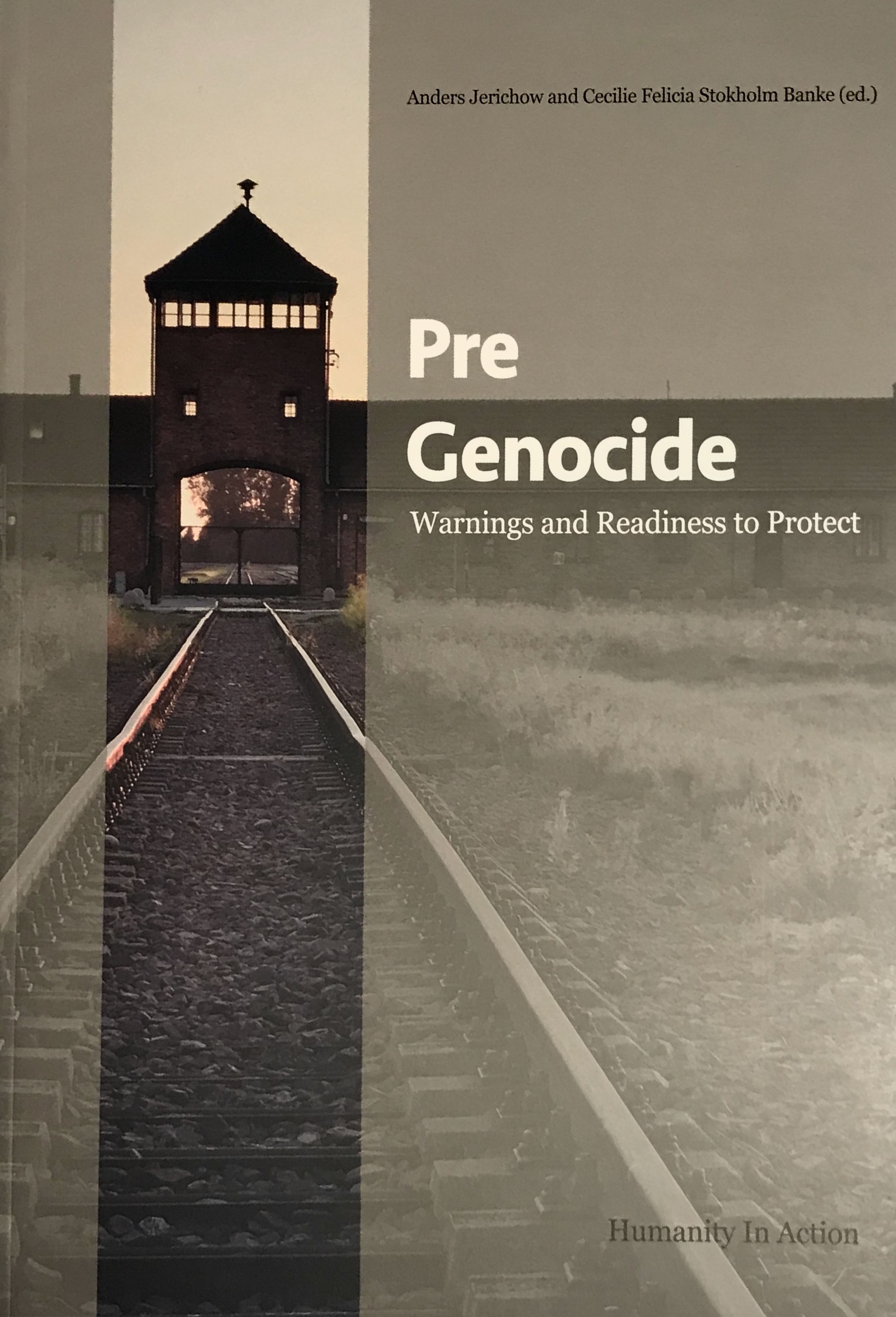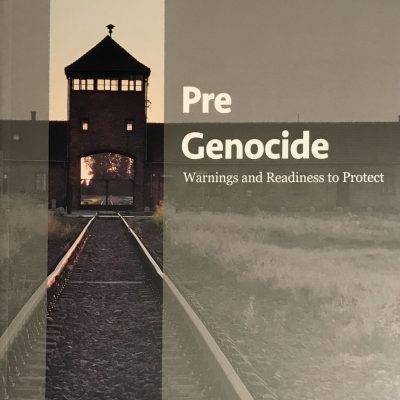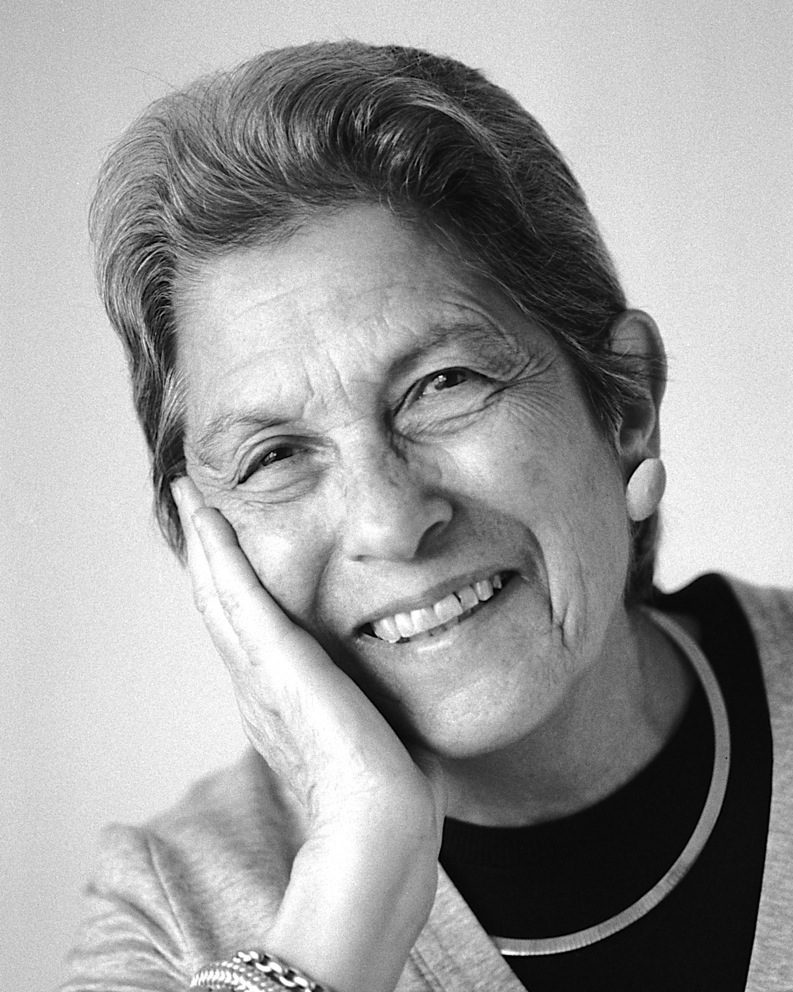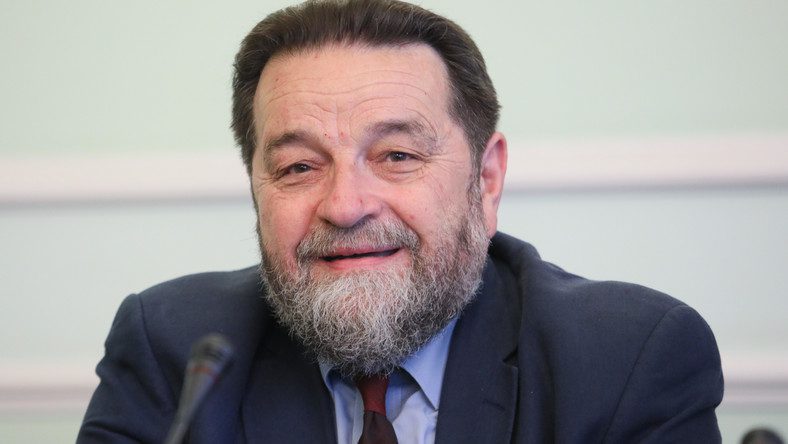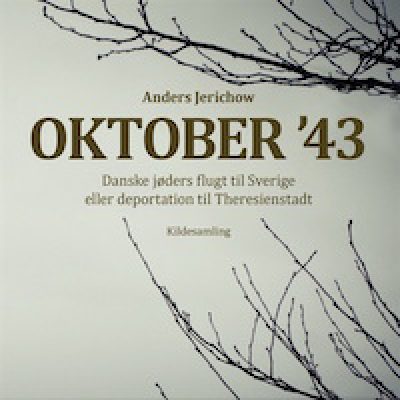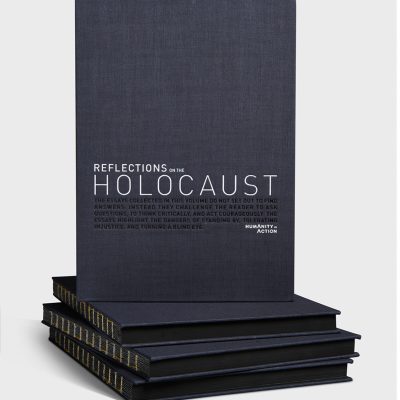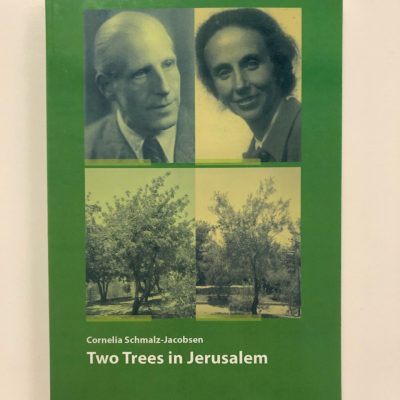Details
Article
Pre-Genocide – Warnings and Readiness to Protect is an anthology of personal interpretations, by researchers and writers, about alarm bells and the readiness to protect prior to genocides.
The essays in this volume focus on the 1930s before the Holocaust in Germany, Poland, Hungary, Italy, the Netherlands and Denmark – as well as the years before the genocides in Armenia, Cambodia, Kurdistan, Rwanda and Bosnia.
The English version of the book can be downloaded free of charge further down this page. If you wish to purchase the Danish version of the book either in print or as an e-book, please email our Copenhagen office.
Contributors:
- Dr. Simon Adams – Executive Director of the Global Centre for the Responsibi- lity to Protect, established in 2008 with the support of international human rights leaders, including former UN Secretary-General Kofi Annan. Dr. Adams has wor- ked extensively with governments and civil society organizations in South Africa, East Timor, Rwanda, and elsewhere. Dr. Adams is the author of four books with a focus on international conflict. He has also written for leading global newspapers and appeared as an expert commentator on Al-Jazeera, BBC World News, ARD and Deutsche Welle News (Germany), China Global Television Network and nu- merous other media.
- Taner Akcam – holds the Kaloosdian & Mugar Chair of Armenian Genocide Stu- dies at Clark University. Akçam is widely recognized as one of the first Turkish scholars to write extensively on the Ottoman-Turkish Genocide of the Armenians in the early 20th century. He is the author of more than ten scholarly works as well as numerous articles in Turkish, German, and English on Armenian Genocide and Turkish Nationalism. His most known books, A Shameful Act: The Armenian Genocide and the Question of Turkish Responsibility (2006) and Young Turks’ Crime Against Humanity: The Armenian Genocide and Ethnic Cleansing in the Ottoman Empire, received several awards. Akçam’s latest book is Killing Orders: Talat Pasha’s Telegrams and the Armenian Genocide (2018)
- Cecilie Felicia Stokholm Banke is a historian, senior researcher and research coordinator at the Danish Institute for International Studies, specialized in Euro- pean history before and during Second World War. She has published on the development of Scandinavian welfare states, refugee policies between the two world wars, Turkey and the EU and momory policies. Co-edited Civil Society and the Holocaust. International Perspectives on Resistance and Rescue (2013). She is also member of the board of Humanity In Action (Danmark)
- Edina Bećirević is an associate professor of security studies at the University of Sarajevo, where she herself completed undergraduate studies in journalism in 1990 before attaining two Master degrees, in the Department of Social Psycho- logy at the London School of Economics and in the Political Science Department at Central European University. She defended her doctoral thesis on genocide in Eastern Bosnia at the University of Sarajevo in 2008. Her research focuses on the causes of war and genocide in Bosnia and Herzegovina from 1992 to 1995, as well as on transitional justice in the complex, post-war period; and she has published extensively on these topics. Her book Genocide on the Drina River examines the genocide committed by Serb forces against Bosnian Muslims during the 1992- 1995 war in Bosnia, and was published July 2014.
- Bent Blüdnikow and is a historian, journalist, critic, author of several books, among them Som om de ikke eksisterede (1991), Bombeterror i København (2011) og Min fars flugt (2013). Previously archivist at Danish National Archive. At pres- ent, Blüdnikow is a cultural reporter and critic at Berlingske Daily newspaper, Copenhagen.
- Laszló Csősz is a senior historian at the United States Holocaust Memorial Center, Budapest. Co-editor of The Holocaust in Hungary, a source volume in the Doc- umenting Life and Destruction series by the United States Holocaust Memorial Museum (2013). He has written several articles including “Land Reform and Race Protection: The Implementation of the Fourth Jewish Law in The Holocaust in Hungary: A European Perspective” (2005), and several entries to The Geo- graphical Encyclopedia of the Holocaust in Hungary (2013). Csősz compared the Hungarian case with the policies of other countries, particularly independent yet Nazi-allied Romania, Bulgaria, and Finland.
- Konstanty Gebert is an international journalist and columnist at one of Poland’s biggest newspapers, Gazeta Wyborcza, and an Associate Fellow at the European Council on Foreign Relations. A former dissident, Mr. Gebert founded the Polish Jewish intellectual monthly Midrasz, and serves as a board member of the Dutch Jewish Humanitarian Fund, as well as the Einstein Forum in Potsdam, Germany. In his capacity as a professor, Mr. Gebert has taught in Poland, Israel and the US, and has authored ten books regarding Polish democratic transformation, French policy toward Poland, the Yugoslav wars and the wars of Israel, Torah commen- tary and post-war Polish Jewry.
- Judith S. Goldstein founded Humanity in Action in 1997 and has served as its Executive Director ever since. Under Judith’s leadership, Humanity in Action has organized educational programs on international affairs, diversity and human rights in Bosnia and Herzegovina, Denmark, France, Germany, Greece, Poland, the Netherlands and the United States. She received her PhD in history from Co- lumbia University and was a Woodrow Wilson Scholar for her MA studies. Judith has written several books and articles about European and American history, art and landscape architecture. She is a member of the Council on Foreign Relations and several boards and advisory groups.
- Frederik Harhoff is professor emeritus in International law at University of Sou- thern Denmark Universitet. Judge 2007-2013 at the UN International Criminal Tribunal for the former Jugoslavia, ICTY and 1996-98 senior legal officer at the UN Criminal tribunal for Rwanda, ICRA. Has published extensively, lately Fol- kerettens historie (2017), As Good as it gets …: om forholdet mellem dansk ret og folkeretten (2016, on relations between Dansh law and international law) og Krigsretten i moderne krige (2016)
- Anders Jerichow – senior correspondent and columnist at Politiken daily, chair of Humanity In Action (Denmark) since 2009, chair of Danish PEN 2005-2015. Chair of the Ministry of Education advisory steering committee for education in Holocaust and other genocides. Authored and edited several books on human rights and the Middle East. Co-edited Civil Society and the Holocaust. International Perspectives on Resistance and Rescue and published the large source collection Oktober ’43.
- Wichert ten Have is advisor to the International Holocaust Remembrance Al- liance, IHRA. Previously director of Holocaust and Genocide Studies at the Netherlands Institute for War, Holocaust and Genocide Studies. He has taught at Amsterdam University. Holocaust-researcher, main topics include the history of the Netherlands during the German occupation in World War II, the history of the Holocaust and contemporary studies of countries occupied by the Third Reich.
- Ulrich Herbert is a professor in history. From 1992 to 1995, he served as direc- tor of the Research Center for the History of National Socialism in Hamburg. He then accepted a position as professor for early modern and modern history at the University of Freiburg, where he has remained ever since. Ulrich Herbert’s main area of expertise is contemporary history. Even in his dissertation on the role of forced labor for the war economy in the Third Reich, he did not just cover the economic and employment policies of the German authorities in the Reich or the occupied areas but also emphasized the specific, ideologically conditioned interrelationship between social policy and racism. Herbert established a wide reputation in academic circles with his monograph on Werner Best, in which he provides a contextualized analysis of the worldview of National Socialism and its rational implementation by the Nazi regime.
- Alexander Hinton is a professor of anthropology, director of Center for the Study of Genocide and Human Rights, Rutgers University, Newark. He has authored Why Did they Kill? Cambodia in the Shadow of Genocide (2005), Man or Mon- ster? The Trial of a Khmer Rouge Torturer (2016) og The Justice Facade: Trials of Transition in Cambodia (2018).
- Joos Hiltermann is one Middle East and North Africa program Director at In- ternational Crisis Group, leading the organisation’s research, analysis, policy prescription and advocacy in and about the region. Previously, he was Project Director for the Middle East (2002-2007. PhD, Sociology, University of Cali- fornia, Santa Cruz (1988); MA, International Relations, Johns Hopkins School of Advanced International Studies (1980). He has written for The New York Review of Books, Foreign Affairs, Foreign Policy, The Financial Times, The National Interest, Middle East Report, and other publications. In 2007, he authored A Poi- sonous Affair: America, Iraq, and the Gassing of Halabja.
- Morten Kjærum is a lawyer, and previously director of Danish Institute for Hu- man Rights in Copenhagen and director of EU Agency of Fundamental Rights in Vienna. Now Kjaerum is director of the Raul Wallenberg Institute of Human Rights and Humanitarian Law in Sweden. Member of the board of Humanity In Action (Denmark)
- Ferenc Laczó (PhD) is assistant professor in European history at Maastricht Uni- versity. He is the author of three books, including Hungarian Jews in the Age of Genocide. An Intellectual History, 1929-1948 (2016). He is also the co-editor, with Joachim von Puttkamer, of Catastrophe and Utopia. Jewish Intellectuals in Central and Eastern Europe in the 1930s and 1940s (2017) and editor of the special issue of the Hungarian Historical Review The Holocaust in Hungary in Contexts (2015/3). Laczó has published peer-reviewed articles, among others, in Holocaust Studies. A Journal of Culture and History, the Journal of Modern Je- wish Studies and the Leo Baeck Intitute Yearbook and has released review essays in Contemporary European History and Yad Vashem Studies.
- Selma Leydesdorff is a professor of oral history and culture. Her dissertation on the Jewish poor of Amsterdam, 1900-1940 introduced a critical revision of the then-dominant historiography of the modernization and assimilation of poor Jews. Publishing books and editing volumes that have shaped oral history is the main thread running through her academic career, on the themes of totalitaria- nism, subjectivity, trauma, the transmission of stories. She interviewed on life in concentration camps and recorded interviews with survivors of Auschwitz and Mauthausen in international projects. In 2002, she started a project with survivors of Srebrenica, which brought a major international attention as an oral historian of trauma. She is public speaker on themes as ‘the holocaust’, ‘Jewish history’ and ‘trauma and memory’.
- Assumpta Mugiraneza is co-founder and director of the IRIBA Centre for multi- media heritage, Rwanda. She is an educationalist, a socio-psychologist and a poli- tical scientist. For 20 years, she has worked on the topics of extreme violence and genocide, focusing particularly on the role of language and communication, for example comparing the Nazi and Hutu power discourses. She has written several book chapters and academic articles on the topic. She teaches about the history and the prevention of genocides, using multimedia archives.
- Michelle Sarfatti is a Holocaust-researcher, author of several works on JEwish history and anti-semitism in Italy, among them The Jews in Mussolini’s Itali: From Equality to Persecution. Previously she was director of Fondazione Centro de Documentazione Ebraica Contemporanea, CDEC. One of the founding editors of the e-journal Quest. Issues in Contemporary Jewish History.
- Abram de Swaan (1959) is emeritus University Professor of Social Science at the University of Amsterdam. From 1969 to 1991, he was editor of the general cultural monthly magazine De Gids. Together with Paul van den Bos, he made a series of television documentaries. In 1971 a television movie appeared and a book with the title Een boterham met tevredenheid; gesprekken met fabrieksar- beiders (And a Pat on the Back to Boot: Conversations with Factory Workers) was published. De Swaan wrote short articles for the Dutch newspaper NRC/ Handelsblad on a weekly basis, which have been published in three volumes. In 2001, ‹Words of the World: The Global Language System› was published, together with a special edition of De Gids: De woorden van de Swaan. ‘Dutch Welfare Reforms in an Expanding Europe: The Neighbours’ View’ was published in 2004. De Swaan has been director of the Academia Europea de Yuste, España since 2004.
What are the lessons of the past? Are we better prepared today?

Table of Contents
- Judith Goldstein, Preparing Ourselves for the Future, p. 6
- Anders Jerichow, Introduction: Never Again, p. 8
I. Genocide
- Armenian Nation: Inclusion and Exclusion under Ottoman Dominance, Taner Akcam, p. 22
- Germany: Omens, hopes, warnings, threats: Antisemitism 1918-1938, Ulrich Herbert, p. 3
- Poland: Living apart, Konstanty Gebert, p. 40
- Italy: The Fascist Campaign and Legislation Against the Jews, Michele Sarfatti, p. 48
- Hungary: The Trap of Loyalty: Antisemitism on the Eve of the Holocaust, László Csősz og Ferenc Laczó, p. 56
- The Netherlands: Dissonance between Feelings of Safety and Destruction, Selma Leydesdorff, p. 64
- Denmark: No One Could Predict the Holocaust – But Can We Predict the Danger Now?, Bent Blüdnikow, p. 72
- Cambodia: What Makes a Man Start a Fire?, Alexander Hinton, p. 83
- Kurdistan: In Iraq: Fighting for Statehood, Dying for Oil, Joost Hiltermann, p. 84
- Rwanda: Genocide against the Tutsies, a story of Rethorical Escalation, Asumpta Mugiraneza, p. 103
- Bosnia Herzegovina: Genocide in Srebrenica and the Valley of Death, Edina Bećirević, p. 120
II. Readiness to Protect
- Cecilie Felicia Stokholm Banke, The Refugee Problem in the 1930s, the Reaction of the International Society and James G. McDonald’s Early Warning about the Holocaust, p. 128
- Abram de Swaan, Before the Catastrophe, p. 141
- Frederik Harhoff, We could see it coming, p. 150
- Simon Adams, The Fate of Rohingyas and the Future for Responsibility to Protect, p. 155
- Morten Kjærum, A Future for the Rule of Law and the Division of Power?, p. 164
- Wichert ten Have, The Deceptive Graduality of Discrimination, p. 172
III. Documents
- The UN Convention on the Prevention and Punishment of the Crime of Genocide, p. 179
IV. Contributors
- Contributors, p. 185
